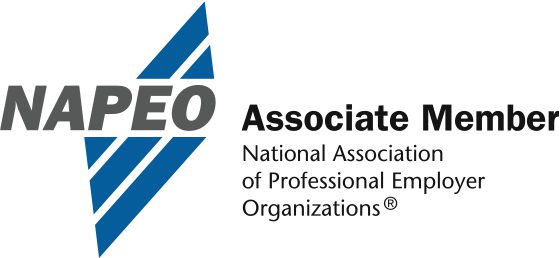Guest Blog by OneMedical
It’s very likely that in the last year, you postponed a medical appointment. It’s also very likely that it had something to do with COVID-19.
Putting off medical checkups is not a new phenomenon, of course, but the scale of deferred care doctors have seen in the last year is unique. The CDC estimates that as many as 41% of adults delayed or avoided medical care because of concerns related to COVID.
The reasons were abundant: fears about visiting health care facilities and bringing home the virus, burnout from too much work, the struggle to balance work and childcare, or the loss of employer-based health insurance. With all of these factors stressing people out, it’s understandable that routine checkups got pushed back. Even some doctors deferred their own self-care.
The result, however, can be bad for your health, as well as your finances. That’s why health care leaders are urging Americans to get back into the habit of regularly seeing their doctors.
Leah Rothman, DO, is a family physician and the Northern California regional medical director for One Medical, a national advanced primary care provider. From Day One spoke with her about the risks of deferred care and how we can all safely return to making timely visits to our clinicians. Excerpts:
What is deferred care?
Deferred care is a reaction to COVID-19. We know that a lot of people during sheltering-in-place orders deferred care for things that were active issues, new things that may have popped up, chronic issues, things that they had a diagnosis for–or even things that were preventative. Because the threat of COVID was looming so large, there was so much fear and anxiety and uncertainty as to whether or not the health-care setting was a safe place to interact with.

Is this a phenomenon unique to COVID?
I think COVID has really accentuated the concept of, “I have a health care question. Am I going to be motivated to act on that question by seeking the guidance of a clinician?” In the past, I’d say delaying care was intermittent, but not nearly as large. Deferred care in the past was predominantly influenced by access. So if you had a clinical question but the next available appointment wasn’t until a month out, you’d say, “Ah, what’s the point? It’ll probably be better by then.” So barriers to access in primary care and medicine, I think, was previously the largest influencer of whether or not somebody would engage.
Who has been deferring their health care and why?
I would be hard pressed to come up with a group that hasn’t been deferring care. Adolescents defer care because a lot of times adolescents are drawn in when they’re required to see a doctor for sports physicals. I’ve seen young adults defer care because they’re working from home and they want to stay safely in their bubble. I’ve seen parents defer care for those same reasons, with the addition of “How do I manage everything that’s going on at home?” I’ve seen a lot of elders defer care because they feel like they are in the highest-risk group of contracting or having a very negative impact from COVID. I couldn’t tell you that there’s a single group that’s reliably come in during the pandemic and said, “This is great, your waiting rooms are empty, and I’m happy to be here.”
Have physicians, yourself included, deferred care?
Yes. I will say that not sheepishly or apologetically. I think it’s really important for us to acknowledge that amid the fears and uncertainty, the health-care team was not outside of that. We too had all of the same information the general public had, and there were big gaps of time where we didn’t know what the risk of coming to work was, or what the risks that we ourselves might bring to others.
For my own personal example, I forwent any dental-cleaning appointments in the year of 2020. It was related to that concern or the potential guilt that I would have if I exposed somebody, because here I am interacting with others with COVID testing or treating for COVID.
What are the dangers of deferring even the most routine health-care appointments?
There are a couple of things I think of as the downstream effects. The first one is that the intention of screening is to identify things early, before they get more difficult, before they get messy, before they get too big to recover from. You want to find something early so that you can make changes early and prevent it from being more costly.
The other thing that can happen is just not diagnosing something. So something that may have been found and prevented from becoming a cancer is now a cancer. And just that diagnosis alone, even if it’s treatable, is something that really looms large on people’s psyche.
What could be the long-term effects of delayed care for communities and populations?
What plays out in the community is highlighted by deferred care for chronic conditions. Let’s say an individual has elevated blood pressure and they’re seeing that their blood pressure at home is not what their provider told them is the goal, but they’re not inclined to go into the health care setting. This becomes a ticking time bomb. Rather than address it early on to bring an uncontrolled blood pressure under control, it might progress to the level of being an acute issue where this person has chest pain and needs ER care.
The message we’ve been trying to get out throughout COVID is ensuring that people know the safety of the care that they can get in a primary care setting, so they’re not postponing their own needs to the point that they have to go to the hospital, which we’d like to decongest so they can care for the most ill. But it’s also so they themselves don’t have to go through the very high stakes and real risks.
What’s the first appointment someone should schedule if they’ve been deferring care for the last year?
There’s no wrong visit. Even if you haven’t been seen in a year, even if you think your health is optimal, there is a visit for you, and that is an annual wellness exam. It’s a great way to just get a tune-up on knowledge and screening and then set you up for success for another year.
An annual wellness exam is intended to allow a conversation between the clinician and the individual to take stock of their current lifestyle and habits that will inform their health today and in the future. What are the screening tests that you are eligible for? What are the vaccines that you might be due for? What are the over-the-counter medications you’re taking? And is it safe with the frequency with which you’re using them?
The other thing that we’ve seen a lot of is deferred care around mental health, whether it was your concerns around COVID itself, the isolation that you may have felt and depression from a grief response–if you lost a loved one, a neighbor, a family member–or just the anxiety of saying, “Oh my gosh, I’ve lost any sense of organization to my time, I work at home, I live at home, I do child care at home, I’m a home teacher. I didn’t sign up for any of this.” Pretty overwhelming.
Primary care is a great place to go when you need to take stock of how those thoughts and emotions or feelings are influencing your health or influencing your relationships and maybe even your productivity or your sleep. The beauty of primary care is that there’s always something to come in for. And it’s always the right place for any clinical question. If you’ve thought, “I’m going to Google this,” then the primary care provider is the right place to go with that question.
To what extent can virtual-care visits take the place of in-office visits?
I am delighted to say almost seamlessly for a large number of conditions. It’s about having a dialogue and the clinician asking probing questions around it and then coming up with what the plan is. In a number of instances, the exam is not the highest-value item for that discussion. So for people who aren’t able to come into the office, remote visits with One Medical are a really wonderful way to stay connected. Rather than be uncertain about which one to book, I welcome everybody to book for a remote visit and know that I as a clinician will guide you if an office visit is truly warranted.
When is it safe for someone to resume their in-office health-care visits?
Today! It has been safe for a very long time to come into a doctor’s office. I know each office comes up with its own tools to de-risk the office. There is not a time where I could tell you that a health-care setting is a zero-risk experience, but all of the tools that we use significantly lower the risk. Offices are a very safe place to come, not only because of the tools that we have in place, but the knowledge that we have gained over a year’s worth of information about COVID.
How will your relationship with patients and your relationship with your profession change post-COVID?
While empathy, relationship building, and interest have always been important, the opportunity for us to invite the questions and really bring our own humility into the room as clinicians and say, “Yep, that happened to me too.”
What else do you want people to know about resuming regular health checks?
I really want to encourage people to know that our offices should always be a place where there’s no judgment. We can offer validation and humility as clinicians that we ourselves have had the same struggles, that we are not above them. We can use that as a bonding moment to say, “Yep, we’ve been there.” The important thing is not to have a lot of self-judgment around it, but rather know that we can partner together to build a plan to get back to what your idea of optimal health is.

I really want to encourage people to return to that clinical consultation, knowing that you have a champion who’s looking out for your health. There really isn’t any substitute for the primary care clinician who knows your health and who can make an informed recommendation. They know what’s in the background and not just what’s on the surface. Having a person in your corner, having a conductor of the orchestra, a coach in the room, is a great way to know that you’re making really informed decisions that are based on the best evidence we have today.
One Medical is an advanced primary care partner that supports teams and families at 8,000+ companies to improve the physical and mental health of the workforce. Learn how One Medical empowers employees to engage with their health again. Contact us here.







